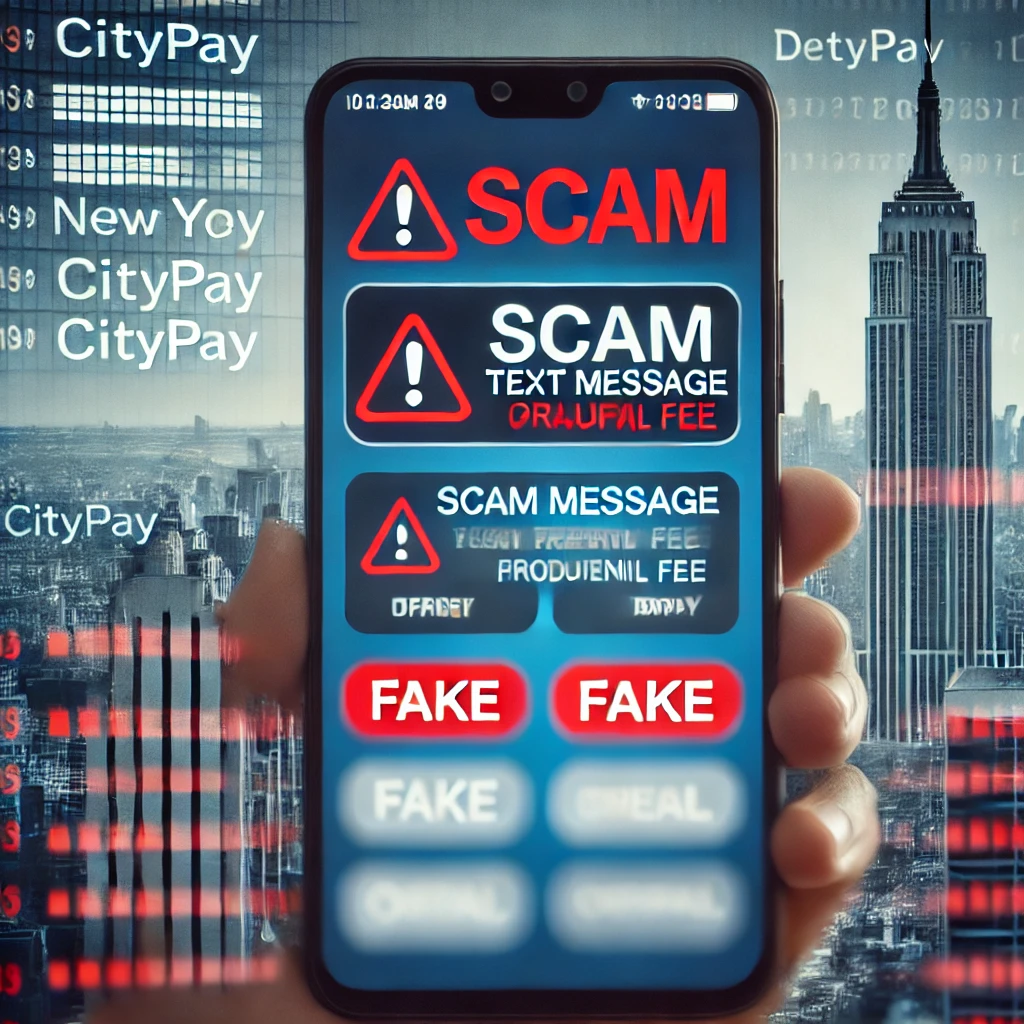Introduction
.New York City residents are currently being targeted by a new wave of scam text messages claiming to be from “CityPay.” These messages often prompt recipients to pay a fraudulent fee under the guise of an unpaid charge. This alarming trend necessitates heightened awareness and proactive measures to avoid falling victim to these scams. Fake CityPay notifications are designed to mimic legitimate payment requests, making it crucial to verify any payment demands through official channels.

Overview of the Scam
The scam involves text messages purportedly from CityPay, a legitimate payment system used by the City of New York for various municipal payments, including parking tickets and other fines. These fraudulent messages typically inform the recipient of an unpaid charge and threaten additional fees if immediate payment is not made. The messages usually contain a link to a fake website designed to look like the official CityPay portal, tricking users into entering their personal and financial information.
Key Characteristics of the Scam
Unasked Messages:
These text messages arrive unexpectedly and often contain urgent language to create a sense of panic.
Official CityPay notifications typically do not come via text message unless explicitly opted into by the user.
Threats of Additional Fees:
The fraudulent messages threaten additional charges, usually around $25, if the alleged unpaid fee is not settled immediately.
This tactic is intended to coerce the recipient into quick action without verifying the legitimacy of the message.
Fake Websites:
The links in these messages direct users to websites that closely mimic the official CityPay portal.
These fake sites are designed to steal personal and financial information once entered by the user.
Protecting Yourself from Scams
To avoid falling victim to these scams, it is essential to follow several key safety practices:
Verify the Source:
Do not click on links in unsolicited text messages. Instead, visit the official CityPay website directly through a trusted browser or contact NYC 311 for verification.
Official notifications from CityPay will typically come through more secure channels such as email or postal mail.
Be doubt of Urgency:
Scammers often use urgent language to create panic and prompt quick action. Take a moment to verify the information before proceeding.
Check the Website URL:
Always ensure that the URL of any website where you enter personal information is correct and begins with “https://a836-citypay.nyc.gov/” for CityPay-related payments.
Use Official Channels:
For any payment-related concerns or verifications, use the official NYC 311 portal or the CityPay website. You can also contact the NYC Department of Finance for assistance.
Official Resources and Alerts
Several resources and official alerts have been issued to help residents stay informed and protect themselves:
NYC 311 Portal:
The NYC 311 portal provides detailed information on how to recognize and report scam messages. Visit NYC 311 on CityPay for more details.
Media Coverage:
Various news outlets, including PIX11 and NBC New York, have reported on the prevalence and characteristics of these scams, raising public awareness.
For an in-depth look, see the Brooklyn Eagle article on CityPay scams.
Gothamist Report:
Gothamist has highlighted the sophistication of these scams, urging residents to remain vigilant. The detailed report is available on their website.
Reporting Scams
If you receive a suspicious text message claiming to be from CityPay, report it immediately:
NYC 311:
File a report through the NYC 311 website or by calling their hotline. This helps the city track and address the spread of these scams.
Federal Trade Commission (FTC):
Report the scam to the FTC through their online portal. The FTC uses these reports to investigate and shut down fraudulent operations.
Local Authorities:
Inform local law enforcement to ensure that they are aware of the scam and can assist in protecting the community.
Conclusion
Scam text messages from fake CityPay senders pose a significant threat to New York City residents. By staying informed, verifying sources, and using official channels for payments, individuals can protect themselves from falling victim to these fraudulent schemes. Always report any suspicious messages to help authorities combat these scams effectively.